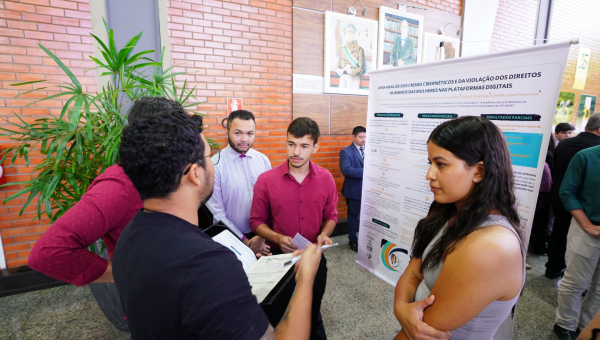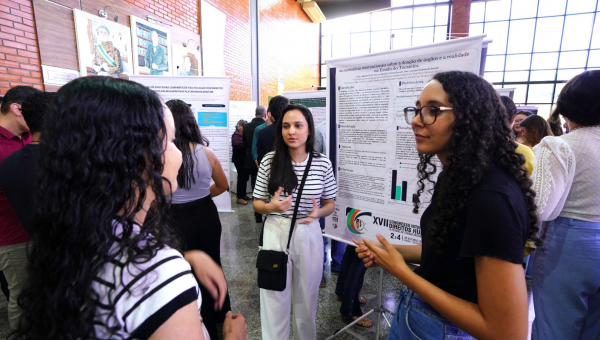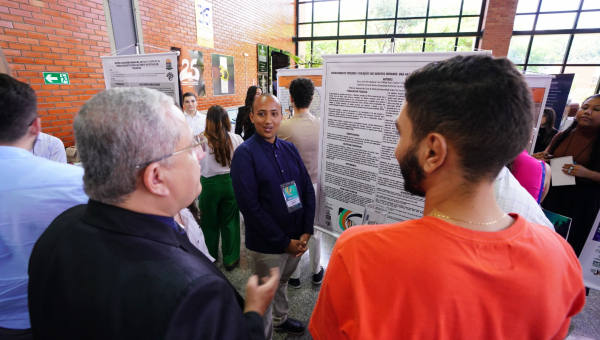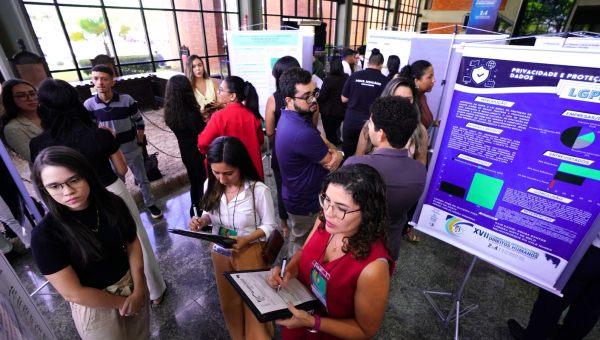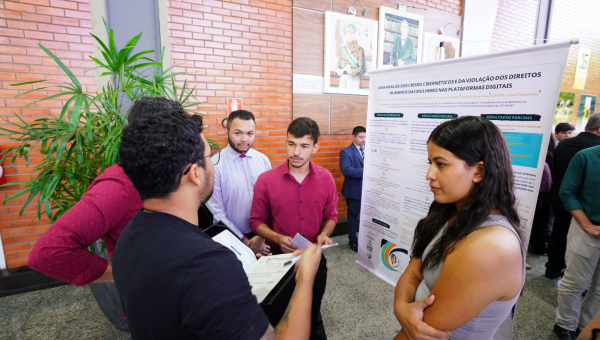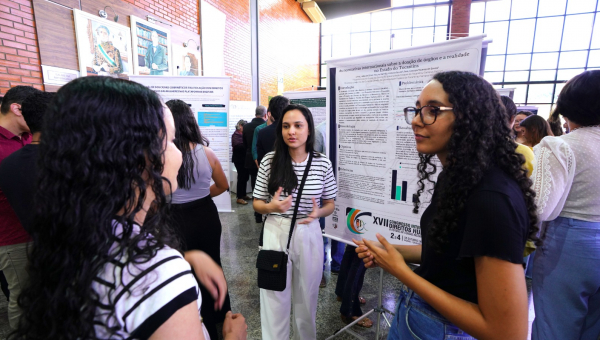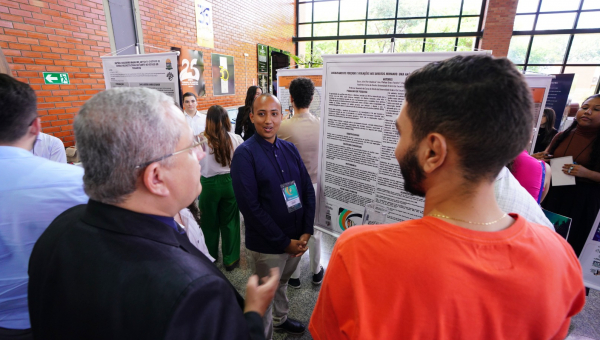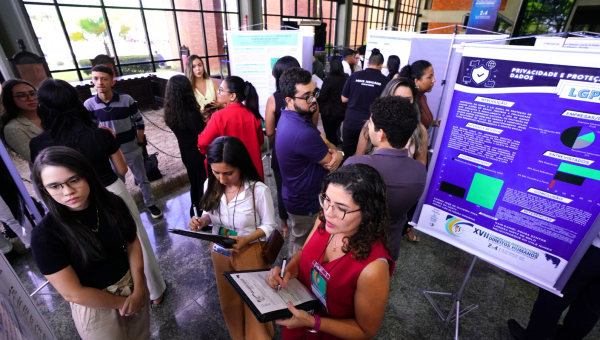
Alongside the programming of lectures, mini-courses and thematic panels of the XVII International Congress on Human Rights, which began on Wednesday (October 2nd) in the auditorium of the Court of Justice of the State of Tocantins (TJTO) with the theme on “The Unconstitutional State of Things”, participants can also check out an exhibition of banners by students from the undergraduate courses of the Federal University of the State of Tocantins (UFT), in the entrance HALL of the Court. The banners will be evaluated and the results announced on Friday (October 4th). The event is an initiative of the Judiciary of the State of Tocantins (PJTO), through the Superior School of the Judges of the State of Tocantins (Esmat).
A total of 24 banners containing a brief summary of the projects of the students are on display, involving themes pertinent to the subject of human rights, such as: international regulations on organ donations; combating child abuse; cybercrime and human rights violations in digital spaces; protective measures to prevent femicide; quilombola rights; the role of the TJTO in preventing and combating transphobia; artificial intelligence and environmental protection; the rights of neurodivergents; among other topics.
Check out the full list of banners here.
Human rights and social inclusion
As well as students from UFT, academics from other institutions such as the Lutheran University of Brazil (Ulbra Palmas) also took part in the exhibition. Under the guidance of Professor Isadora Ferreira Neves, Heitor Corrêa, a law student at UFT, gave a joint presentation with his colleague Guilherme Barros, a law student at Unitins, on the theme: “On the margins of dignity: migratory crises and weaknesses in human rights policies”.
“We looked for a relevant topic with a global context. So, we drew a parallel between the migratory crises, be it among refugees, stateless people, immigrants in general, and international treaties, and how the countries that receive these refugees, these immigrants, the policies they implement to receive these people. Today, in the global context, we are looking at the fact that there has been a huge increase in recent years in policies that dehumanize, and policies that expel people from their country in ways that go against the very treaties and conventions that these countries are signatories to,” explained Heitor Corrêa.
According to him, “in Brazil, we have favorable legislation and yet there is still a certain contradiction when it comes to the integration of these people into public services. Right here in the city of Palmas, we often see Venezuelan immigrants having difficulty accessing public services guaranteed by law, both in the Constitution and in the Universal Declaration of Human Rights.”
Maria Clara Rezende Duarte Queiroz, a student on the Social Work course at Miracema campus of UFT, spoke on behalf of the group on the topic on “Transphobia: the work of the Court of Justice of the State of Tocantins in preventing and dealing with it”, under the guidance of the Justice Professor, Ângela Issa Haonat.
“The Court of Justice trains its employees through actions, conversation circles, such as what happened last year, through the Justice in Dialogue project, which included a conversation circle with Professor Luiz Geraldo, a master in these issues of the LGBTQIAPN+ community. On that occasion, he dealt with LGBTQIPN+ phobia in the workplace, and this year, in May, the commission also brought a workshop on the subject of diversity and inclusion with Master Professor Lucrecia Borges, who is also a trans woman. So giving visibility, giving knowledge and putting this agenda on a daily basis, within the processes, within the internal workforce of the Court of Justice, it is very important to empower and open up the existence of this community.”
Evaluation
The works were assessed by a panel of 11 evaluators, made up of two Professors from the Professional Master's Degree in Judicial Provision and Human Rights at UFT/Esmat and nine master's students from the course. Relevance of the topic; expected results; objectivity in communication; development and mastery of knowledge of the work; posture in dealing with the public were some of the prerequisites observed in the evaluation.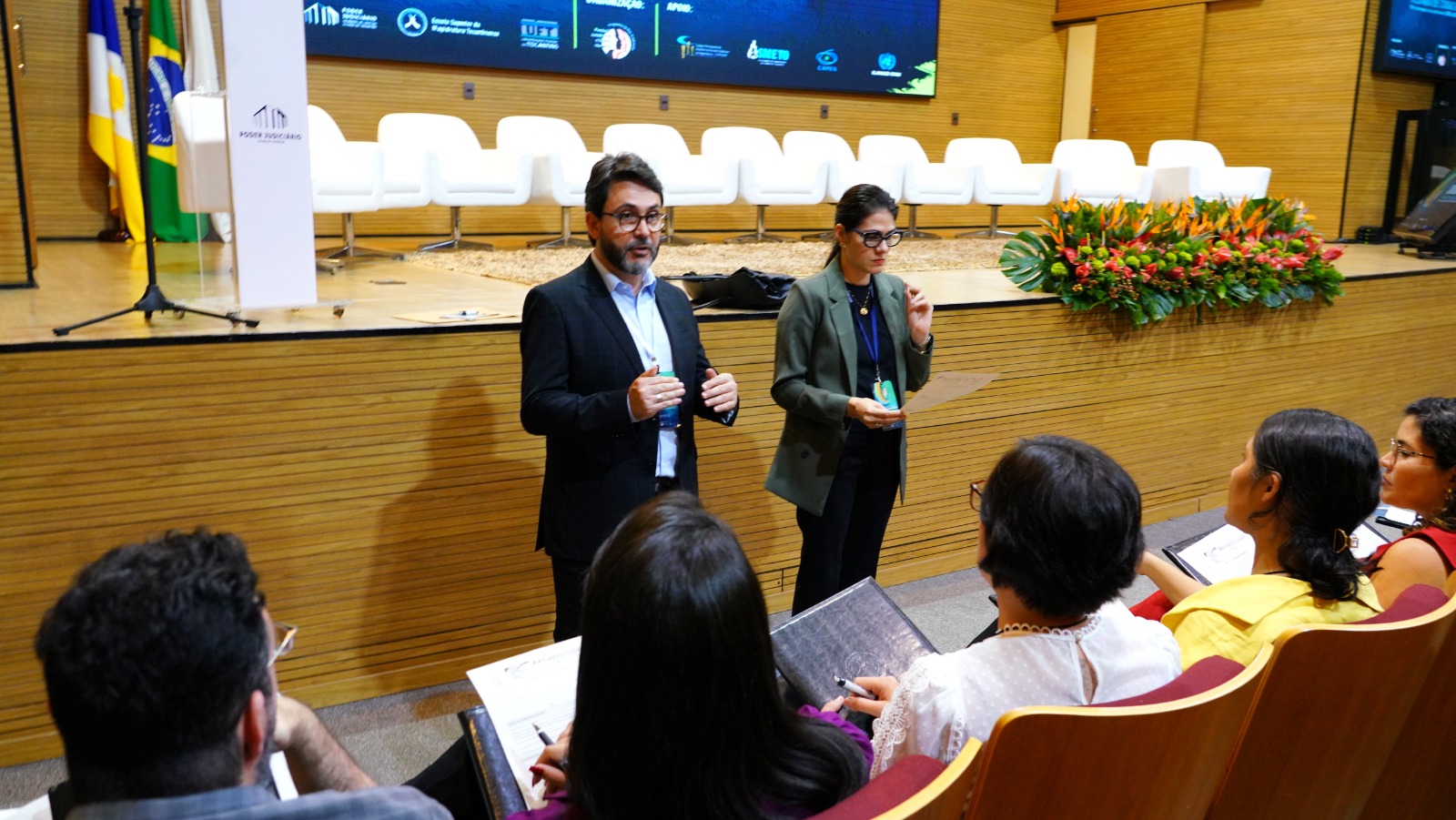
“We have undergraduate students here, but we also have a postgraduate category presenting. So there are two categories, undergraduates and postgraduates. Each category will be awarded a certificate. We'll have third place, second place and first place. So now we're going to have the presentation, we're going to go through each banner in order to evaluate it. Each banner, each group, or a group of students, has up to five minutes to present their work, but the evaluation committee can also ask questions. And based on the presentation, questioning, material presented, we will have the elements to be able to then make the full evaluation of them,” explained evaluator Gustavo Paschoal, a Professor at the master's degree course and one of the organizers of the initiative, alongside Professor Liziane Paixão.




